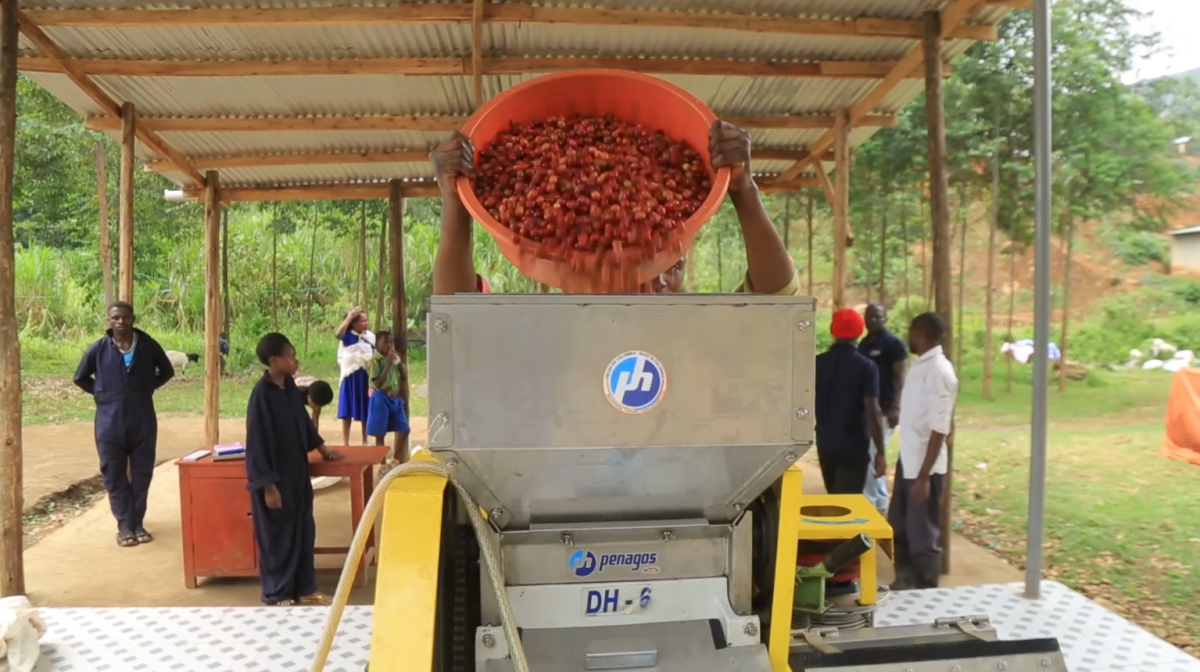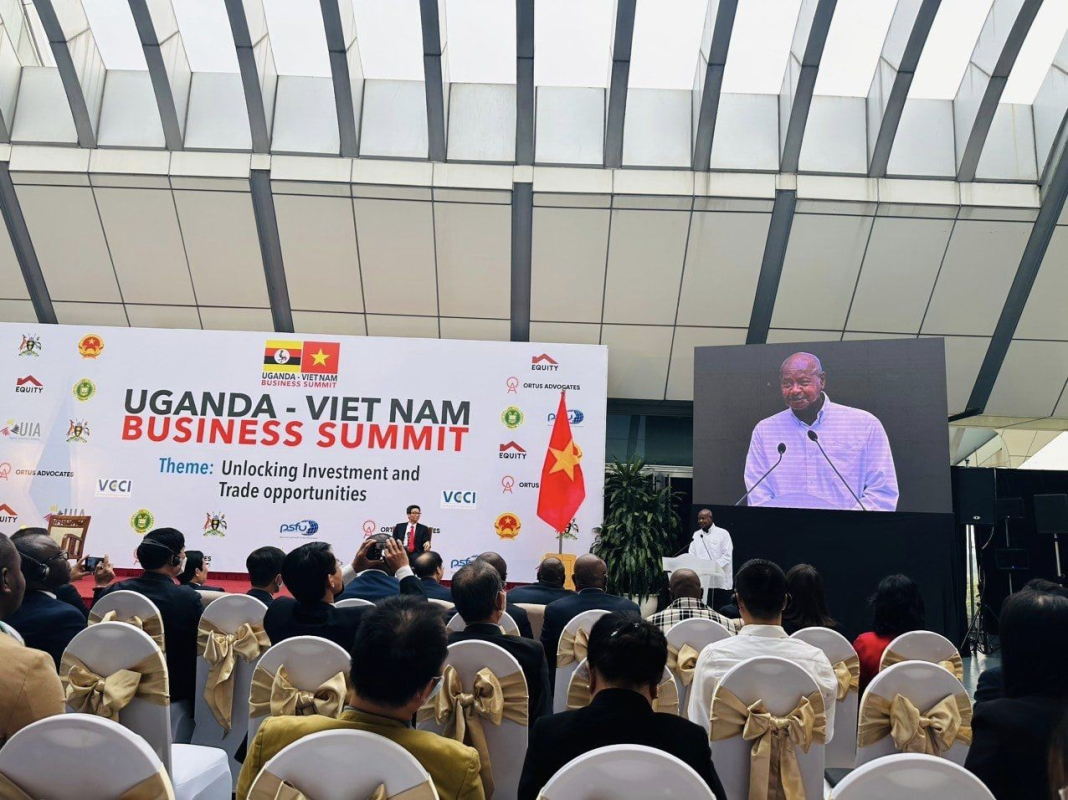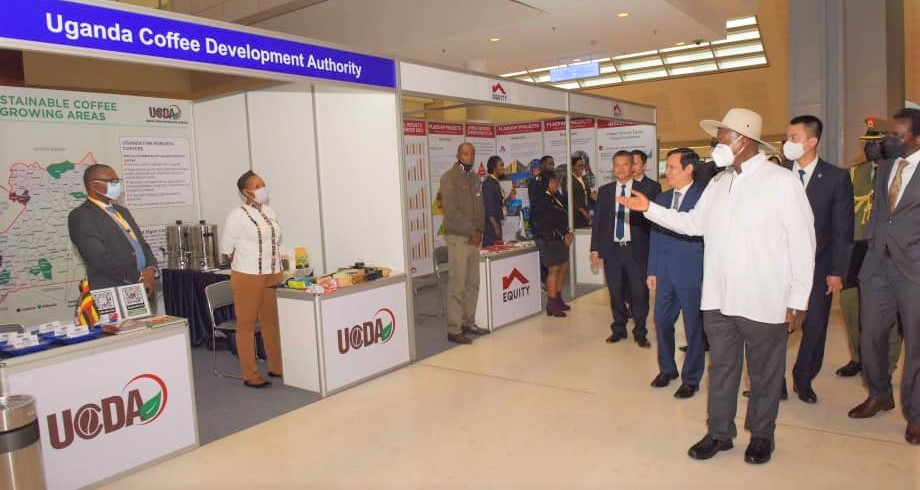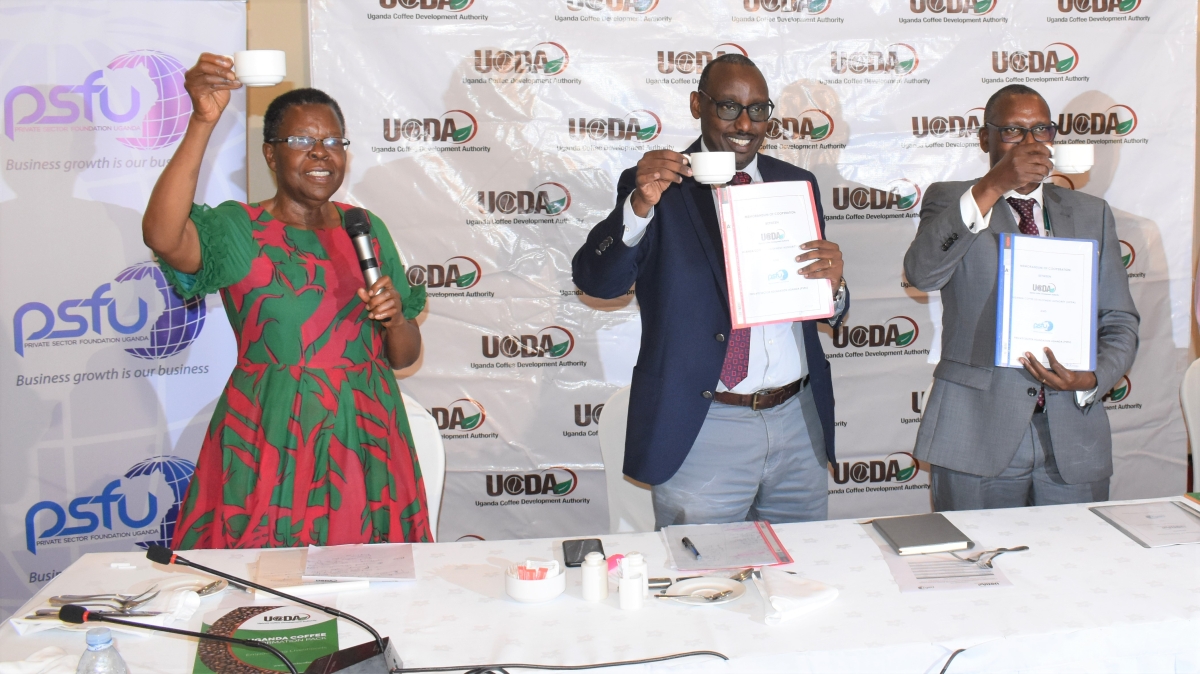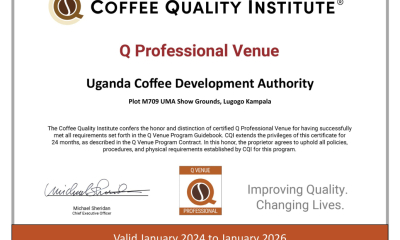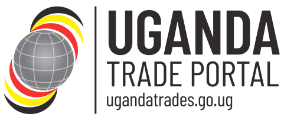EU pledges continued support to Coffee, Cocoa Sub-sectors

The Deputy Director General, International Partnerships at the European Commission, Myriam Ferran, has pledged continued support to Uganda in the coffee and cocoa sub-sectors.
Ferran made the remarks during a visit to the Uganda Coffee Development Authority (UCDA) laboratory in March together with Ambassador Jan Sadek, Head of the European Union Delegation to Uganda, Caroline Adriaensen, Head of Cooperation and Sofian Dahmani from the EC International Partnerships Directorate. The visit was important in kick-starting strengthened cooperation between the European Union and UCDA in implementing the comprehensive value chains approach as part of the coffee and cocoa priority value chains for the Global Gateway in Uganda.
The European Union has been supporting the Ugandan coffee and cocoa value chains through two major projects implemented by UCDA over the past five years. The EU-EAC Market Access Programme (MARKUP) worth EUR 3.638.000 and the Coffee and Cocoa Value Chain Development (CoCoDev) Project in Uganda worth EUR 8 million (UGX 32.8bn) have supported the value chain development from smallholder farmers to certification, among other areas. The implementing period for MARKUP was 2018 to 2021 (with a second phase in the pipeline) while that for CoCoDev is 2022 to 2026.
During the visit, Ferran commended UCDA’s efforts in the coffee and cocoa sub-sectors and called on the Authority to involve refugee-hosting communities in coffee production. This, according to Ferran, would help to improve the lives of refugees and contribute to the inclusive growth of the coffee industry. Sixty-five percent of Uganda’s coffee exports go to the EU, placing the country in a position to compete favorably with other producing countries.
The team was hosted by UCDA’s Managing Director, Dr. Emmanuel Iyamulemye, who took them through a coffee cup-tasting session to appreciate the uniqueness of Uganda’s coffee. Also on display were Ugandan cocoa and cocoa products.
Dr. Emmanuel Iyamulemye, applauded the EU for the financial support, which, he said, is consistent with the Authority’s desire to strengthen cooperation with the EU in order to support the expansion of the coffee and cocoa sub-sectors.
“We have been supporting the private sector to improve their coffee and cocoa standards. [The CoCoDev] project will continue supporting the coffee and cocoa sub-sectors by focusing on commercialisation and providing grants to expand production,” said Dr. Iyamulemye.
Dr. Iyamulemye added that the EU support is also going to improve the cocoa regulatory framework. “For the first time, we are going to have standards for cocoa, and this will enable producers to access even more markets so that they can continue fetching premium prices,” he said.
The European Union’s support of the coffee and cocoa sub-sectors in Uganda is vital for the country’s economic growth. Uganda is known for its high-quality coffee beans and the EU’s continued support will enable the country to increase its production and expand its market reach.
Uganda is the leading exporter of coffee in Africa and the 7th largest producer in the world. With 65% of the coffee exported to the European Union, it is clear that this is an important market for Uganda.







